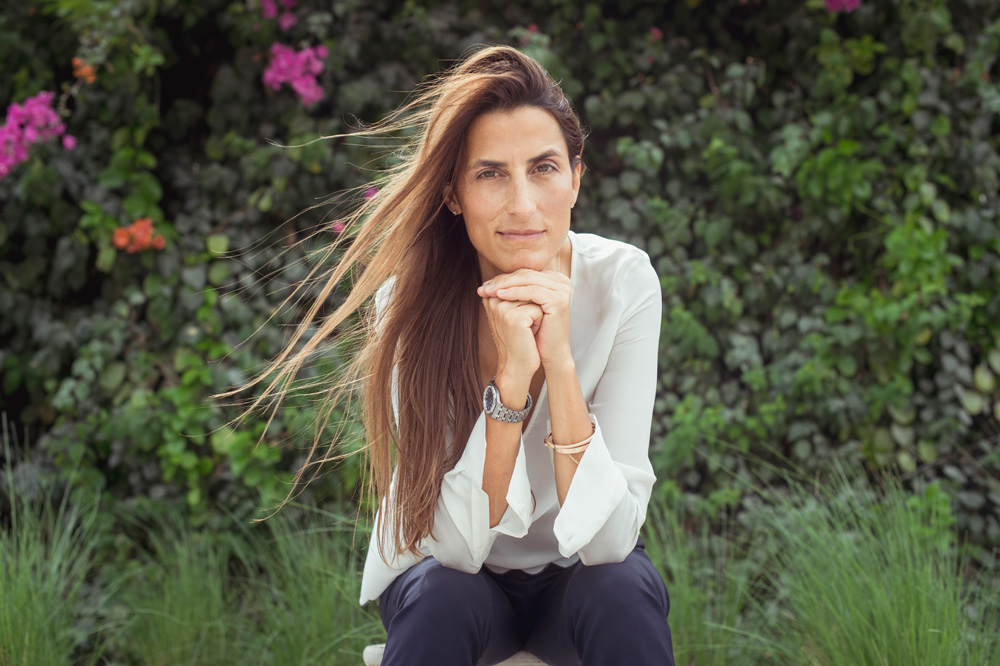
Dr Lanalle Dunn
It can certainly be challenging to eat healthily during Ramadan with all those food-laden tables at get-togethers and all-you-can-eat buffet Iftars at restaurants. However, when fasting is done right, for example filling up on proteins and vegetables, the Holy Month can come with physical benefits, like resetting your metabolism, cutting down cholesterol levels and losing weight.
For you to fully profit from the daily sunset to sunrise fast, AboutHer gets comfy with Dr Lanalle Dunn, the Founder of The Chiron Clinic in Dubai’s Jumeirah area. As well as discussing the science behind having the traditional dates and milk to break the fast, Dunn, who graduated from the Canadian College of Naturopathic Medicine, tells us the common mistakes people in the region make when it comes to sitting down for Iftar. The Canadian, who has completed continuing education in acupuncture, Dorn therapy and Anthroposophical Physician Training amongst others, also gives advice about the foods and drinks to avoid to minimise thirst, how to stay focused and active, as well as exercising while fasting.

Non-Muslims can also benefit from fasting’s numerous health gains and many are taking on the popular 5:2 diet, an intermittent fasting plan, in Dunn’s multi-service clinic. So we also ask the established naturopathic specialist, who treats a wide-range of family medical issues via a combination of scientific and traditional cures, about the physical rewards of undergoing the 5:2 diet.
Is snacking between breaking the fast and going to sleep beneficial? If so, which kinds of nibbles do you recommend?
It depends on the time period and quality of snacks, but generally you should avoid refined sugars/grains when snacking. It is not beneficial to snack and immediately go to sleep as you should have gentle movement to stimulate digestion post-prandial, which is part of the wisdom behind the extended night Tarawih prayers after Iftar. The act of prostration and standing up in repetition uses gravity and grounding techniques to our advantage and actually promotes better/more complete digestion of your food by your stomach acid and relieves bloating and gas.

Can you explain the science behind having the traditional dates and milk to break the fast?
Milk is regarded nutritionally as a complete protein, and dates, although high in natural sugars, are also high in minerals like potassium (exponentially higher than what is found in bananas). A common complaint during fasting periods is dizziness or fatigue, which may not only be related to blood sugar but also mineral/salt balance, a reason why there’s an inherent wisdom behind eating mineral-rich dates. Moreover, milk is highly anabolic (aka promotes growth/muscle building) in that it promotes an insulin response that stimulates not only absorption of sugar but also better absorption of amino acids, the building blocks of protein thereby helping you to maintain muscle mass.
Milk also contains bioactive protein fractions, such as lactoferrin and alpha lactalbumin, that promote a healthy immune. Not only that, but contrary to the popular belief of avoiding fat/using fat-free dairy, dairy fat has been shown in the research to aid in promoting a better insulin response, which is important in those with diabetes or metabolic syndrome.
Which foods and drinks should be avoided during fasting to minimise feeling thirsty and getting dehydrated once the sun rises?
- Fried foods and sweets, plus highly refined carb-based foods
- Salty foods like salted carbohydrates, chips, salty cheeses etc.
- Salted fish / seafood in general can cause one to feel particularly thirsty.
- Although salt/mineral balance is important to maintain during fasting, it is better to use it in cooking or add electrolytes to your drinking water, from natural sources like Himalayan Pink salt, naturally sourced sea salts or oral rehydration salts.

Which common mistakes do people in the region make when it comes to eating Iftar, the main meal?
- Eating too much and caving to peer pressure to eat more even when full is a common mistake people make. This can be avoided by pre-setting portion sizes in smaller plates before breaking your fast instead of serving from bigger pots, etc.
- When you don’t listen to the body’s natural signals when full.
- You can get too distracted while breaking your fast, socialising / TV etc., which also inhibits your body’s natural signs of feeling full.
- When you choose to eat nutrient-poor simple carbs like refined grains/bread/pasta instead of focusing on nutrient-rich vegetables, complex carbs like quinoa and sweet potato, etc.
- Eating too much cold/raw/uncooked food or cold water for Iftar will be hard on the stomach so it is better for you to eat warm/cooked vegetables/broths/soups (traditionally lentil or vegetable soups are served for Iftar).
- One should not break the fast with a large meal but focus on nutrient-density and eating a larger/main meal later on, which will avoid sudden over-distension of the stomach/cramping/bloating/gas, etc.
It’s already pretty hot in the Arab world and the weather can sap our energy. Tell us some tips and tricks to help us stay focused and active. - You should avoid prolonged sun exposure, especially during the hottest periods of the day between 12-4p.m.
- Drink plenty of water throughout your permissible feeding window, but also make sure you add a bit of extra salt to your meals as it is common for those who fast to have a deficiency in minerals.
- Contrary to popular habits, you should try to keep your mind busy with hobbies, spiritual self-development practices, prayer and avoid sedentary behaviour or sleep for long periods of the day as it will only increase your hunger sensation.
- By spacing out your meals in manageable sizes during/after Iftar and Suhoor, you can also help improve your energy throughout the fasting period; you should also avoid eating big meals before sleeping.
Eating the pre-dawn meal, Suhoor, is also important for maximising energy isn’t it? What are the other benefits? - It helps to restore your sugar stores in your liver, which will help hold you over energy-wise until Iftar the next day.
- It gives a person another opportunity to eat besides saving all your caloric intake solely during Iftar.
You should avoid eating Suhoor and going to sleep immediately afterwards as this may prevent full digestion, causing reflux, bloating, cramps etc.

How important is it to exercise during Ramadan?
It can be quite effective for fat-loss purposes as fasting has been shown to actually increase growth hormone production, thereby can promote muscle gains if you break your fast with adequate protein and complex carbs to stimulate a healthy insulin response.
And what would be an ideal time of day/night to exercise during Ramadan?
Due to the fact there is no fluid intake during fasting periods with respect to Ramadan, it would be best for you to workout close to Iftar time in order to avoid severe dehydration. You should avoid workouts longer than 20 – 30 minutes and avoid high endurance/cardio training (running/swimming) or high intensity heavy weight training, which will deplete body sugar stores quickly and leave one fatigued / thirsty. Those who want to stay active can try light weight or body weight resistance exercises on a modified rep-break interval period instead of high intensity interval training, which may be too strenuous during fasting.
Can you share an example of a one-day meal plan?
This depends on a person’s health/medical history, physical activity and personal health goals and any food allergies or avoidances e.g. vegetarian, vegan, gluten/dairy free etc.
Generally as a rule of thumb, Iftar should be the smallest size meal but still nutrient dense, as with date fruit, broths/lentil soup, etc; lots of fluids but minimal refined grains/sugars/juices so as to avoid spiking your blood sugar too rapidly or too often and consequent fat storage/weight gain.
Tell us about the physical benefits of intermittent fasting, which can be carried out by people from all faiths?
Preliminary research has shown intermittent fasting to be useful for helping to reverse insulin resistance, decrease inflammation, accelerate weight loss specifically through fat burning, optimise endogenous growth hormone production and decrease risk of chronic illnesses like diabetes. It also decreases the risk of autoimmune diseases, inflammatory bowel diseases like UC/Crohn’s disease and neurodegenerative diseases like Alzheimer’s, dementia and Parkinson’s.
Why is it important to fill up on proteins and vegetables, whether you’re fasting during Ramadan or trying the popular 5:2 diet?
Especially when on a restricted calorie diet as with 5:2 or simply reduced caloric consumption due to a limited eating window as with Ramadan, you want to aim to eat quality not just quantity so nutrient density, which is found most in vegetables and protein, is key.
However one should not disregard the importance of consuming healthy fats like those found in avocado, coconut oil, olive oil, flaxseed oil, nuts and fish.
















